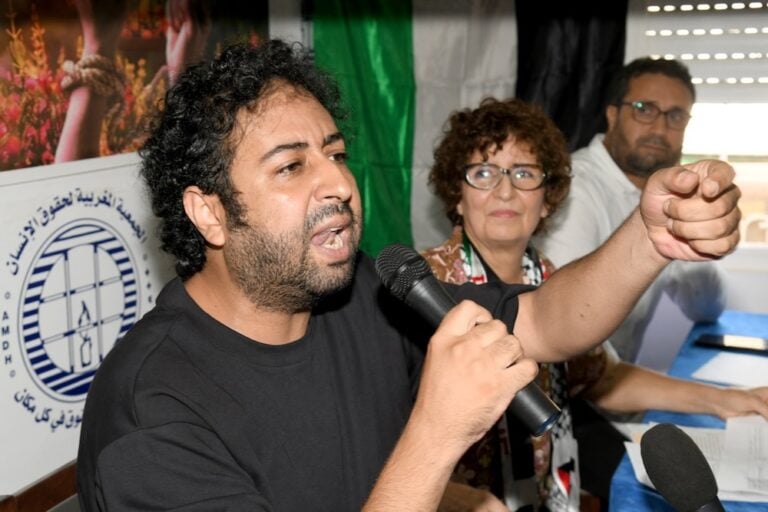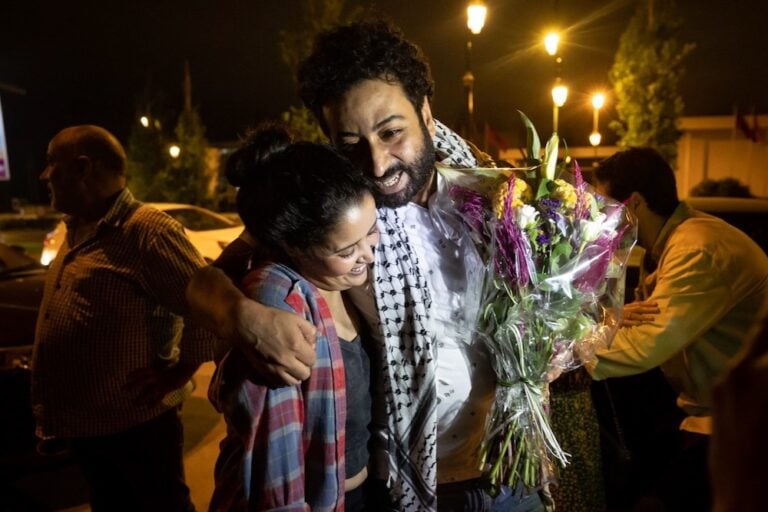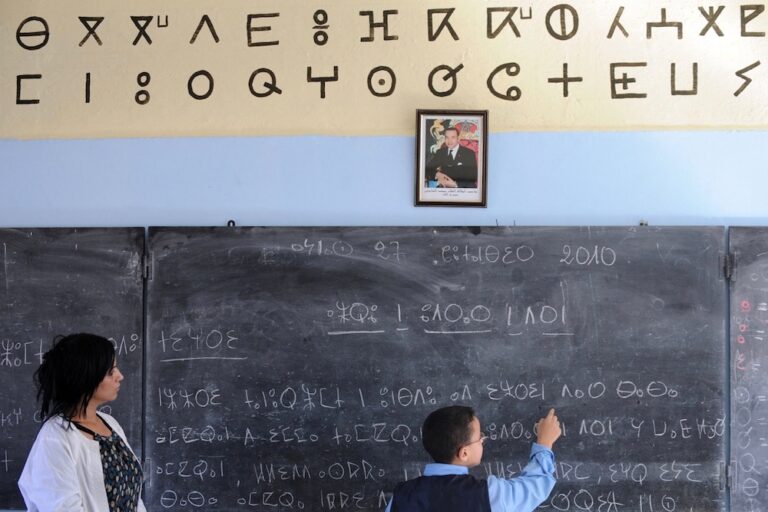Moroccan journalist Ali Lmrabet has been the target of sustained harassment after he published an article about a high-ranking General wanted for questioning by a French judge.
(RSF/IFEX) – Reporters Without Borders is concerned about the increasing violations of freedom of news and information in Morocco. Some journalists, such as Ali Lmrabet, are targets of sustained harassment for criticizing certain political leaders or for tackling subjects that directly or indirectly affect King Mohammed.
“Moroccan journalists must be allowed to work freely,” the press freedom organization said. “Abuses committed by some elements of the security and intelligence services are a cause for concern. We call on the Moroccan government and local authorities in Tetouan to do all in their power to protect Ali Lmrabet and put an end to the campaign of harassment that the journalist is suffering for simply exercising freedom of expression.”
Lmrabet, who runs the news website DemainOnline.com, says he has been the target of new threats and intimidation since he published an article on 31 July that referred to the presence at the London Olympics of General Hosni Benslimane, who is wanted for questioning by a French judge investigating the case of Mehdi Ben Barka. Ben Barka was a Moroccan dissident who disappeared from the streets of Paris more than 40 years ago.
The journalist said he had been assaulted on several occasions. On 12 August, for example, he was beaten for no good reason by three unidentified men who stole his identity card and some money. According to the journalist, the attackers were plainclothes policemen.
A day earlier, a man tried to enter his house about 1 a.m. Lmrabet made complaints in both cases, but no action was taken by the Tetouan police.
On 17 September, several people climbed on to the terrace of his house to film him and his family. “Early in the morning, to my great surprise, an armada of officials including several plainclothes police officers and two intelligence agents led by the local administrator, violated our privacy by climbing on to my terrace to film me and family,” he reported.
Lmrabet was set upon by one of the intruders, who snatched his camera, and threatened and insulted him.
In another case, proceedings were launched against the news portal Yabiladi.com for defamation by the head of the Council for the Moroccan Community Abroad over an article about his travel expenses that was published on the site.
The first hearing in the trial was due to be held today at a court in the Casablanca district of Ain Sebaa. The official is demanding damages of 500,000 dirhams (about 45,000 euros), a large sum in Moroccan terms.
Reporters Without Borders also notes that on 4 October the Moroccan government arbitrarily decided to strip the Agence France-Presse reporter Omar Brouksy of his press accreditation for allegedly writing “an unprofessional dispatch about the partial legislative election in Tangiers”. Issued by the communication ministry, accreditation is needed by professional journalists in order to work in Morocco.
In its description of all the parties fielding candidates in the election, Brouksy’s offending dispatch referred to Fouad Ali El Himma, founder of the Authenticity and Modernity Party (PAM), as being “close to the king.” A Moroccan national, Brouksy told Reporters Without Borders he was the “victim of an act of persecution.” He added: “A degree of contextualization is essential to understand these elections. In reality, the dispatch was very balanced. There is nothing in this description that justifies the withdrawal of accreditation.”
These cases are part of the difficult climate faced by journalists in Morocco, which is ranked 138th of 179 countries in the 2011/2012 World Press Freedom Index compiled by Reporters without Borders.


